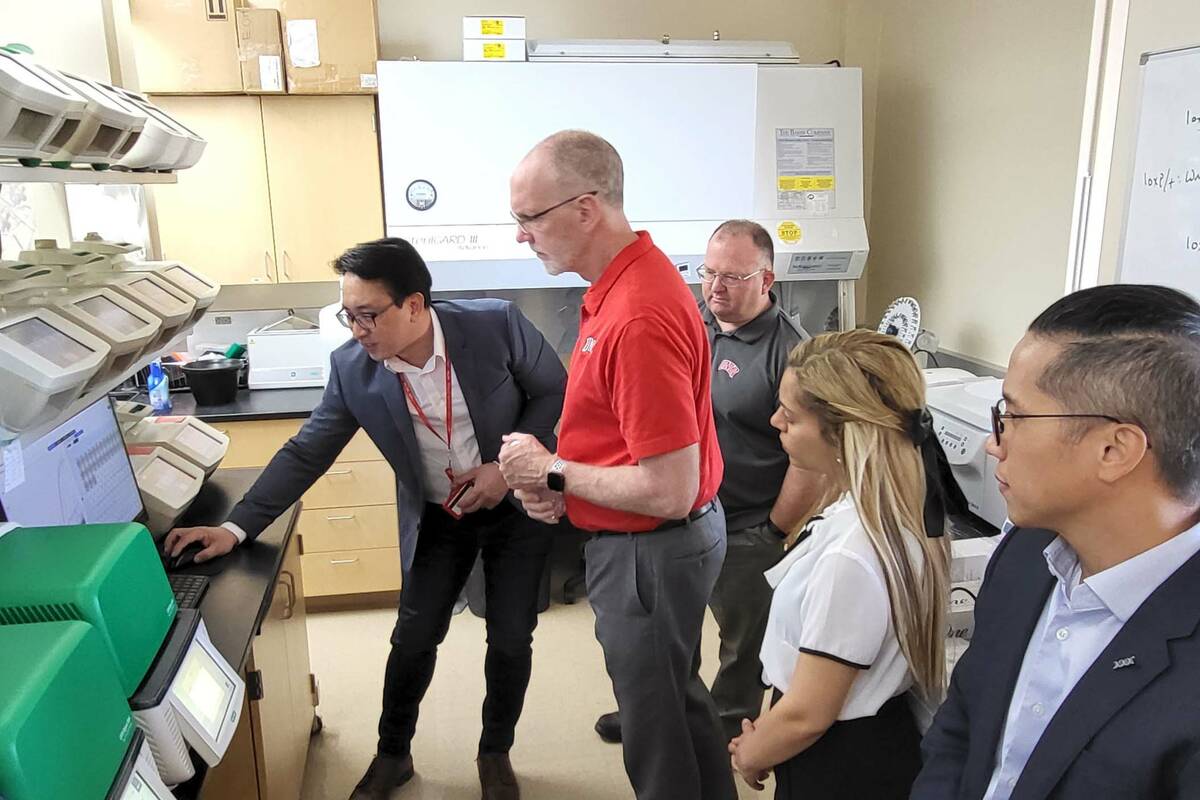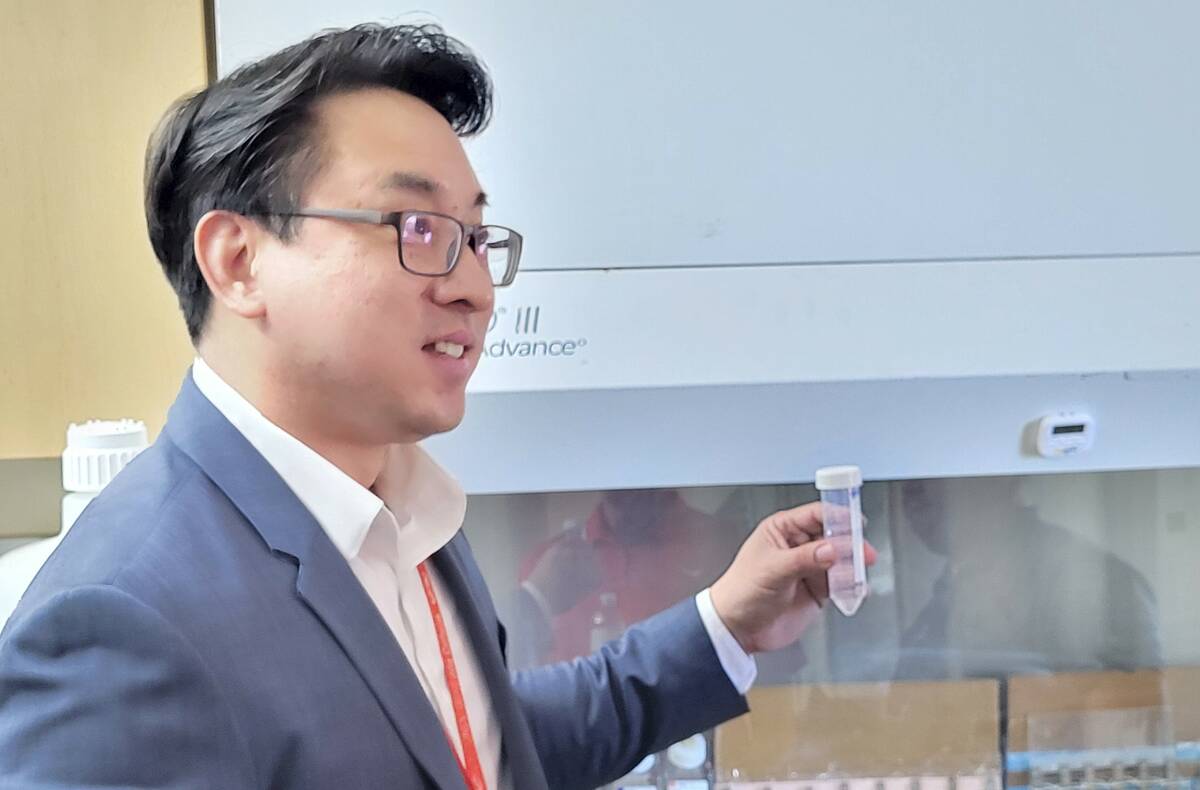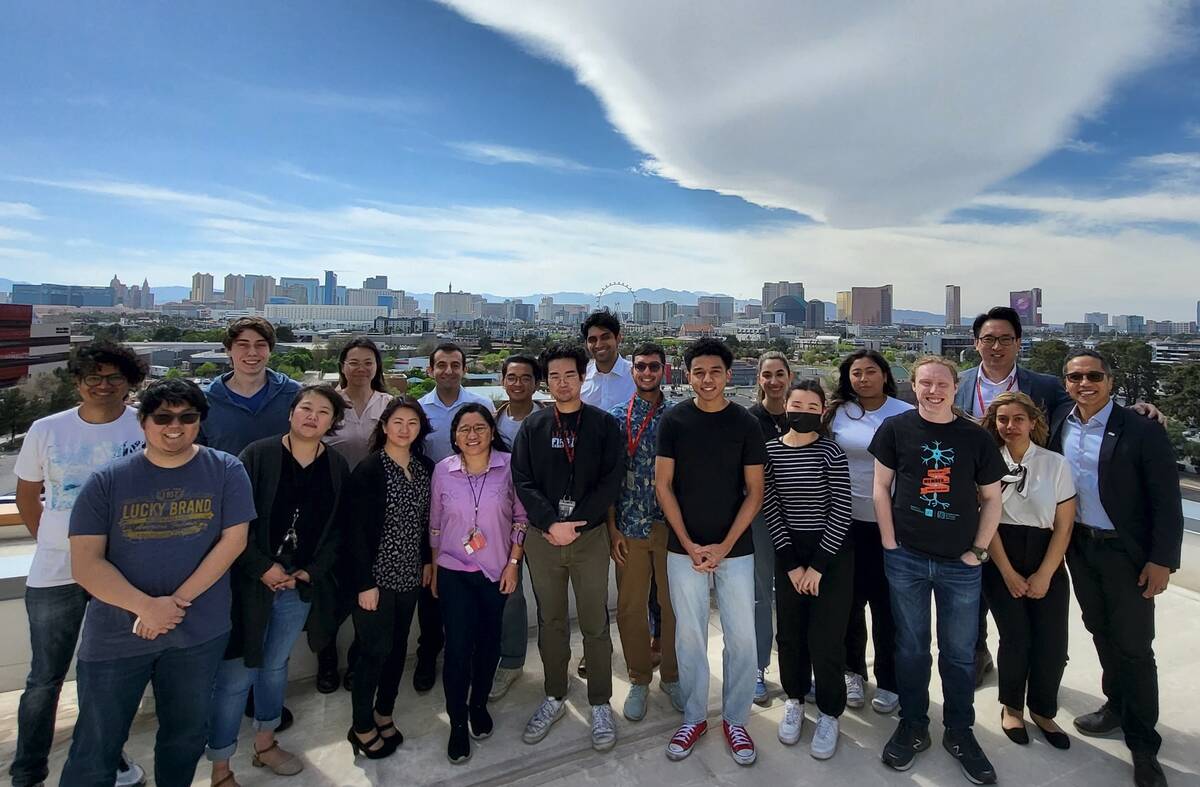Sewer water already tracks COVID, but UNLV says it can do more
On Monday, Edwin Oh led UNLV administrators on a tour through the lab where he and his colleagues study sewer water.
Since its inception in 2020, Oh’s wastewater analysis program has been able to detect multiple COVID-19 variants in Southern Nevada and correctly predict spikes in those variants before cases rose.
Oh and his team also have detected more cases of mpox in Clark County than was reported in the county at the time. The program was able to detect influenza levels in local schools as well.
UNLV Executive Vice President and Provost Chris Heavey and Vice President of Research David Hatchett toured the lab on the heels of the program’s application for a grant that would expand its research capabilities beyond infectious diseases.
Oh and his team are looking to expand the range of the program’s testing capabilities with the latest grant applications to include testing for drug use in local communities and schools.
“It’s just a matter of taking the program that a lot of states and cities have developed, the wastewater monitoring program, and leveraging that infrastructure to ask a slightly different question,” Oh said about testing for drug use in wastewater.
Hatchett credited the program for its ability to gauge the health concerns of local communities without violating protected privacy of individuals. Oh highlighted the wastewater research for the speed of its results and anonymity when compared to alternatives like canvassing communities.
“We can get information about the entire Strip, and no one individual needs to have the finger pointing at them,” Oh said.
‘A trendsetter for the future’
Oh said he never expected to work with wastewater before the program and also wouldn’t have expected the program’s level of success.
“This is not what we would have anticipated. If you told me three years ago that we would be working on wastewater, I would have laughed,” Oh said. “Now we’ve taken this really, really strange matrix and extracted really useful information.”
Oh and his colleagues are also looking to expand their range to test for diseases that they didn’t expect to find in local communities, like drug-resistant gonorrhea and Candida auris.
As they left the lab Monday, the university administrators said they were proud of what the program has been able to accomplish so far and look forward to what it will do. Hatchett called the program “a trendsetter for the future.”
“This is kind of a model of what we want to see at a research university, how the research helps contribute to society,” Heavey said.
Contact Mark Credico at mcredico@reviewjournal.com. Follow him on Instagram @writermark2.



















